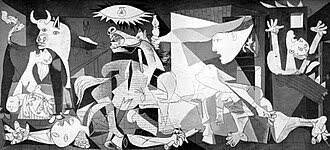@RobertBarnes
Re: Homelessness
This one is not as developed of a thought nor does it have as many parallels in study/history. So, it is presented with a bit of a grain of salt and should be salted to flavor.
Homelessness and routine prison sentences are common among a group of people who are, I would argue, institutionalized - or perhaps their brains just prefer a pattern of life which maps well onto the focus of institutions. Life, as we currently live it, is relatively stressful with many different burdens of attention resting on an individual. When compared and contrasted with life in the military, as an example, the institutional life is very simple. You have a small area to maintain, food provided, job tasking, and the ability to focus in on that job and the performance of it. There's no challenge of finding a domicile, matching it to income, figuring out where you are going to work, messing with lawn care, tree care, etc.
There are many people who simply would prefer to live without those concerns, perhaps due to mental illness or perhaps just because they would prefer to. The question is how to incorporate those individuals into a functional role of society such that they are net neutral or even positive.
To that, I actually took inspiration from the reason why people embraced the fascist marketing. That is a unity of purpose and a sort of egalitarian brotherhood which stitches society together.
Under the National Guard, a 'civil service corps' is developed. It is a volunteer, unpaid position but comes with compensation of housing and food under the contract of being a labor force for public employ. The primary goal is to intervene and utilize people who would be likely to pursue career criminal behavior and route them into a program that has them helping to manage the mentally ill and forming a ready reserve for crisis response of a non-martial nature. Their barracks would be self-maintained under the watch and advice of the National Guard. They would prepare their own meals and the like.
Further, they would secure, watch, and maintain hospitality facilities - the original concept of a hospital being something of a road house or open bay facility which housed travelers or those without independent accommodations. How they would be dispensed otherwise would be up to local authorities - mayors or parishioners.
Rather than have a system where people break the law to go to prison to escape society, provide an institution which can be entered and left voluntarily that is integrated into society to provide utility/capacity as opposed to be a significant drain. This could, hopefully, address vagrancy, drug abuse among the homeless, help to intervene in criminal development patterns without goofy AI soothsayers, and address some concerns regarding social safety nets and the like, as well as a readily expandable formula for dealing with disaster response.
When you suddenly have a need to house a lot of people who do not have homes, this is the formula you pop up in tents and deploy the experienced people in the capacity to teach and organize.
Further, this platform treats vagrancy as a phase which can be transitioned into and from, helping to keep someone in a vagrant status from being isolated or without resources and enabling a transition back into the modality we are familiar with - or freeing up private residences and rental properties when people would prefer to live closer to the old model of the social commons.
That's the market pitch. It's not fully developed and I don't have a lot of adversarial feedback on it. I do assume that vagrant groups would prefer to stay in something closer to an open bay made available to them than a tent city or loitering/sleeping in restaurant lobbies. There have been some studies which show they sometimes do not, but even in the instance where you do have people intent on a tent city, you still have a support crew who can help with monitoring them ... Or perhaps that is when we say they need to be interned and keep them at the barracks for supervision.
With the spending on social services we have, it is difficult to see this type of solution costing more than those plus the additional burden on the prison system. Models of "self-sustaining prisons" could also be applied, here, with the corps taking on contracts for manufacturing and other things to train in or develop their skills. If many people are perfectly fine with prison life, why do we need to put the law between them and "prison" life? Structure something for them to live and be beneficial in that pattern and keep the criminals in their own system.
There would be some issues of corruption any time you have an entity which supposedly earns money under the government (and one which does not pay labor costs, at that), but I see these as minor and to merely be the same as existing prison systems which people can't voluntarily leave and serve as training grounds for illicit behavior.
At any rate, I appreciate your time and consideration.



















